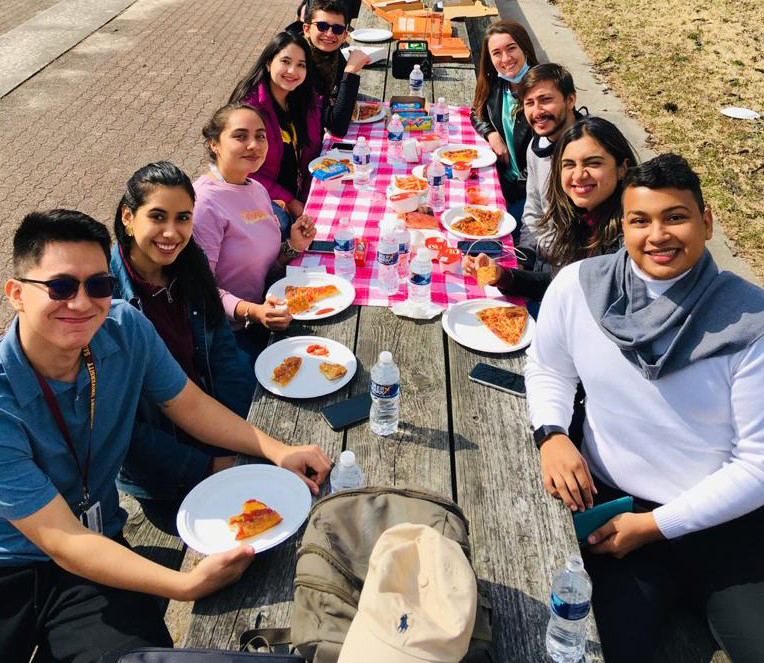SU Welcomes Nexo Global Students from Colombia
 SALISBURY, MD---If at first you don’t succeed try, try again.
SALISBURY, MD---If at first you don’t succeed try, try again.
That has been the mantra for Dr. Brian Stiegler, Salisbury University assistant provost for international education, since 2016 when SU won the Nexo Global Grant, allowing a cohort of students from Huila Province in Colombia to visit SU.
After Stiegler guided Salisbury’s application for the grant, the project was delayed due to presidential elections in the South American nation. The second iteration of the program was slated for summer 2020, but was postponed due to the COVID-19 pandemic.
This year, nine students finally arrived on campus to carry out the grant’s mission. Studying at the University since early February, they will remain at SU through July.
Each of the students has worked on a research project in Huila prior to coming to SU. They now have the opportunity to expand their research and access to information.
“The mission of the grant is to allow undergraduate students, particularly from outside the urban core of Colombia, who are showing some promise and interest in research to have an international experience and to encourage their research,” said Stiegler. “It is intended to support them and give them an indication that this is something that they can do, and they can pursue post-graduate studies.”
The students’ schedule is front-loaded with English courses, along with research methods classes, to assist in their projects. Along with the in-class work, the students are gaining through information from SU Libraries and the University System of Maryland database, to which they would not otherwise have access.
Each student has a faculty mentor in Colombia with whom they have been working on their projects, but they also have a faculty tutor at SU who is available for assistance. Plans are being made to connect the SU and Colombian faculty members to expand their networks.
Two of the visiting students recently presented their projects at the Posters on the Bay exhibition through SU, to state legislators and SU administrators. All are expected to submit an abstract for presentation consideration at the SU Undergraduate Research Conference. Stiegler also plans to have a stand-alone event near the end of their time at SU for the students to display their work.
“All of their research projects really reflect some sort of problem that is specific to Huila,” said Stiegler. “They started the research at home, but our context is not the same as in Huila.”
Sebastian Romero Laguna, for example, is working to develop an automated system which would assist in making medical appointments. In Huila, it can be very difficult to get an appointment with a medical specialist. Individuals sometimes are forced to wait in line up to five hours, costing time at work and loss of wages. While the project does not relate directly to the U.S., other issues, such as difficulty scheduling appointments for COVID-19 vaccines, could be helped through a similar application, said Stiegler.
The students have not had the interaction that would be ideal to engage with SU students, but are finding their way despite COVID-19 restrictions. They are able to expand their knowledge while contributing to SU’s reputation as an institution with a strong undergraduate research base.
“We wanted them to be able to engage with our students. It’s not an ideal situation, but we’re happy to have them,” said Stiegler. “They are happy to be here, and we’re all doing the best we can to make it as meaningful to them as possible and to have them contribute what they can to SU and our undergraduate research program.”
For more information call 410-543-6030 or visit the SU website at www.salisbury.edu.
